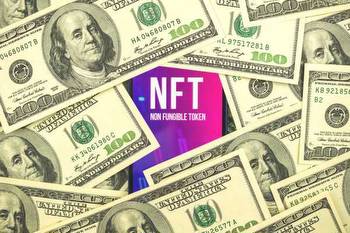Texas and Alabama Securities Regulators File Enforcement Actions Against Online Casino Developer Selling NFTs to Operate Casinos in a Metaverse

The Situation: State securities regulators in Texas and Alabama filed two first-of-their kind enforcement actions against a company selling non-fungible tokens ("NFTs") to operate casinos in a metaverse.
The Result: The cease and desist orders issued against the company allege various state law violations, including making deceptive and misleading representations to investors that constitute fraud and offering NFTs as securities to the public without first registering them with the state commissions.
Looking Ahead: As regulatory agencies continue to monitor developing technologies, expect to see more enforcement actions in the United States alleging that companies are promoting and selling products that run afoul of regulations.
In two first-of-their-kind enforcement actions relating to NFTs, securities regulators in Texas and Alabama ordered a Cyprus-based online casino developer and its founders to cease and desist selling NFTs that allegedly were marketed and sold as securities. The Texas order, dated April 13, 2022, alleges that the company and its cofounders offered 11,111 NFTs in an unregistered and fraudulent securities offering to raise funds to operate virtual casinos in a metaverse. The Alabama Securities Commission, with the help of the Kentucky Department of Financial Institutions, simultaneously issued a similar order against the company and its founders.
According to a statement issued by the Texas State Securities Board, the company and its founders marketed their NFTs—which they named "Gambler" and "Golden Gambler"—as investment opportunities and promised potential buyers a share in the virtual casino's profits, forecasting as much as $81,000 annually. The statement further claims that the company told potential buyers that its NFTs were not regulated as securities because securities laws did not apply to NFTs.
The company allegedly planned to use a portion of the proceeds from its NFT sales to purchase "land" to operate virtual casinos in platforms like Decentraland, Sandbox, Infinity Void, and NFT Worlds, which are metaverse platforms. Metaverse casinos operate just like real casinos, except in virtual worlds. Using virtual reality avatars, customers can enter metaverse casinos and play casino games using cryptocurrencies. According to the allegations made by Texas and Alabama authorities, marketing materials promised owners of Gambler and Golden Gambler NFTs that they would receive monthly payments based on the profitability of the metaverse casinos.
The Texas order alleges that Gambler and Golden Gambler NFTs are securities under Texas securities laws and should have been registered before being offered to the public. The order further claims the company misled the public through deceitful and fraudulent statements concerning these products. This is the first time that securities regulators have issued cease and desist orders related to an NFT offering for a platform in a metaverse, but it is likely not the last. The Texas State Securities Board states that it has identified other securities offerings in metaverse platforms and is coordinating with other states to investigate and possibly pursue enforcement actions.
Four Key Takeaways
- State securities regulators in Texas and Alabama have targeted NFTs that were allegedly marketed and sold as securities offerings.They are actively monitoring all types of digital assets for unregistered and fraudulent securities offerings. Other state securities regulators are likely to follow suit against companies operating in a metaverse that do not comply with state securities laws.
- State and federal securities laws in the United States can apply to non-U.S. companies. Products on distributed ledgers and metaverse platforms are readily accessible by people around the world, which underscores the global regulatory risks of companies that do business in this space.
- While most NFTs that are popular in the market currently do not have features making them securities under United States federal or state law, depending on the rights associated with them and how they are marketed, it is possible that they could be structured as securities offerings.
- Companies operating in this space should engage qualified legal counsel to review their products and marketing plans to advise on any risks.




































